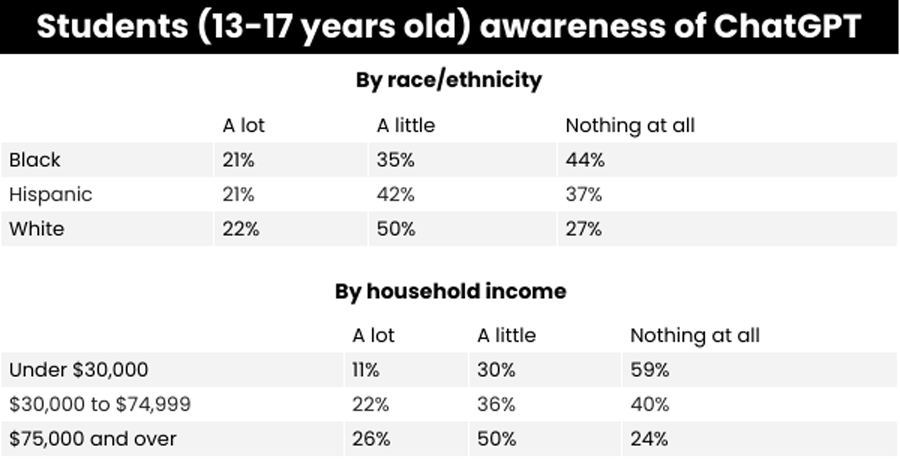High School Cheating Increase from ChatGPT? Research Finds Not So Much
Stanford researchers say the frequency of students cheating on assignments remained ‘surprisingly’ stagnant in fall 2023.

Get stories like this delivered straight to your inbox. Sign up for The 74 Newsletter
The rise of AI chatbot tools caused panic among high school teachers and administrators nationwide — but researchers say the frequency of students cheating on assignments remained “surprisingly” stagnant.
According to new research from Stanford University, about 60 to 70 percent of high school students surveyed in the fall of 2023 have engaged in cheating behavior — the same number prior to the debut of ChatGPT in the fall of 2022.
“I thought that we would see higher numbers in the fall so it was a little surprising to me,” said Denise Pope, a senior lecturer at Stanford’s Graduate School of Education who surveyed students across 40 high schools through an education nonprofit she co-founded.
Victor Lee, an associate professor at Stanford’s Graduate School of Education who helped oversee the research with Pope, said high school students are “underwhelmed” by AI chatbot tools.
“It just sounds very sterile and vanilla to them,” Lee said. “They may have heard about it, but the media a lot of kids are using are quite different than the ones adults and working professionals are attuned to.”
A survey conducted by the Pew Research Center in the fall of 2023 found nearly one-third of students aged 13 to 17 have never heard of ChatGPT and another 44 percent have only heard “a little” about it.
From those who were familiar with ChatGPT, the vast majority — about 81 percent — said they had not used it to help with school work.
“Many teens are using a variety of technology…[but] among those who’ve heard at least a little about ChatGPT, shares of them still aren’t sure how they feel about it,” said Colleen McClain, a research associate at the Pew Research Center.
Here are four things to know about the effects AI chatbot tools have had on high school cheating:
1. High school students who weren’t cheating before aren’t cheating now.
According to the International Center of Academic Integrity, surveys of more than 70,000 high schools from 2002 to 2015 found about 64 percent of students cheated on a test — a similar outcome to Stanford’s findings after the rise of AI chatbot tools.
Pope said what surprises educators and parents the most is how common cheating has been.
“We know from our research that when students do cheat, it’s typically for reasons that have very little to do with their access to technology,” Pope told Stanford’s Graduate School of Education.
“When a student is less engaged, when they feel like they don’t belong or are not respected or valued in their community, when they’re stressed and highly sleep deprived — these are things that tend to correlate with cheating,” Pope said.
Lee said this number will “consistently stay there unless schools engage in certain steps to be thoughtful about what climate they’re creating that motivates cheating.”
This includes tapping into the topics students are already interested in and developing useful skills based on how they naturally enjoy learning.
“A lot of the time, the AI students encounter is via Snapchat because they have a chatbot built into it,” Lee said. “And students aren’t turning to Google as their primary search, they turn to YouTube…[or] video-based searches rather than text-based.”
2. ChatGPT awareness is higher among White, wealthier and older students.
Pew found about 72 percent of white students had at least some knowledge of ChatGPT compared to 56 percent of Black students.
In addition, more than 75 percent of students in households with an annual income of $75,000 or more had some knowledge of ChatGPT compared to 41 percent of students in households with annual incomes under $30,000.

McClain pointed to the “digital divide” as an explanation for Pew’s survey findings.
“The pattern here is quite striking,” McClain said. “It certainly speaks to the fact that not every teen is equally likely to have heard about these tools and used them.”
She added how awareness of ChatGPT was seen more in older students — particularly those in 11th and 12th grade.
“Even among those who heard at least a little about ChatGPT…[young] teens may still be figuring out how they feel about it,” McClain said.
3. High school students have adopted a “good faith” approach to AI chatbot tools.
Pew found only 20 percent of students aged 13 to 17 said ChatGPT was acceptable to write essays compared to 57 percent who said it was not.
But, nearly 70 percent said it was acceptable to research new topics compared to 13 percent who said it was not.

The Stanford researchers found similar outcomes.
At four high schools surveyed this fall 2023, about 9 to 16 percent of students used AI chatbot tools to write essays and about 55 to 77 percent used it to generate an idea for a paper, project or assignment.

“The vast majority don’t want AI to do all the work for them so they’re coming into this with sort of a good faith effort,” Lee said.
“When I’ve had conversations with educators, they sort of breathe a sigh of relief and think ‘oh okay let’s think about some of the cool things we could do’ and that’s exciting,” Lee added.
4. Prohibiting AI chatbot tools won’t solve the systemic issues of why students cheat.
For Pope, finding comfort around AI chatbot tools starts with educators and parents including their students into the conversation.
“If you’re going to come up with a classroom or home policy, you want to have the students present, speaking up and telling you what they think will be the most useful and appropriate uses of AI,” Pope said.
Lee said addressing AI chatbot tool usage in high schools is just the “tip of a much larger iceberg.”
“Part of why we get concerned is because students feel pretty disenfranchised from the boring assignments, tedious homework and essays in these weird written formats that they don’t feel will provide them any long term need or use,” Lee said.
“I don’t see us as saying AI is the best thing since sliced bread, but I also don’t think of us as saying AI is going to destroy humanity,” Lee added.
Get stories like these delivered straight to your inbox. Sign up for The 74 Newsletter

;)
